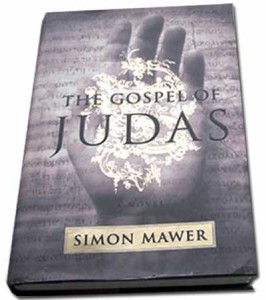 The true believer has a relatively easy time of it. Unshakable, uncompromising faith, buttressed by the congregation, and the authority of dogma, relieve the credulous of much heavy intellectual lifting. The apostate, in a world of true believers, can seemingly never rest. It is hard work to prove, even to oneself, what is not there really isn’t there .
The true believer has a relatively easy time of it. Unshakable, uncompromising faith, buttressed by the congregation, and the authority of dogma, relieve the credulous of much heavy intellectual lifting. The apostate, in a world of true believers, can seemingly never rest. It is hard work to prove, even to oneself, what is not there really isn’t there .
Many years ago I stumbled on an obscure paperback in the bowels of an English bookstore in Rome’s Piazza di Spagna. It was titled The Jesus Scrolls , by Donovan Joyce. We were staying in Rome for several days, the perfect place to read a book that offered studies and plausible hypotheses that composed a quite different version of the life and death of Christ than I had drummed into me during many years of Catholic education. It introduced me to a whole “literature” that I subsequently too up with relish, and which I, too eagerly, expounded to family and friends with the annoying intrusiveness of a “convert.” These books, such asThe Passover Plot , by Hugh Shonfeld, were works of non-fiction, but it was often the freedom to speculation and imagination offered by fiction that had as much a ring of plausibility.
The RC Church seems to attract most, if not all, of the narrative speculation about the existence of evidence that might bring this elaborate confabulation of dogma. Liturgy, money and power to its knees on something other than genuflection. It’s a tempting target, much more so than the decentralized and far less interesting Protestantism with its myriad manifestations from High Anglicanism to low circus tent Revivalism. Protestantism is not one of the “great” religions; is a “Johnny-come-lately” cheap imitation. Catholicism did all the heavy lifting in Christianity.
Mawer’s The Gospel of Judas therefore is one of a genre composed of both fictional and non-fictional accounts that question that of the New Testament. Richard Ben Sapir’s The Body , for example, revolves around the possibility that humans remains found in a sarcophagus in Jerusalem might be those of Jesus Christ, hence so much for the resurrection. The Jesus Scrolls has Christ surviving the crucifixion , perhaps by design (that sponge of gall might have been powerful drug, for example), as does The Passover Plot , and ending up with a group of Essenes until eventually committing suicide with the other occupants of Masada during the Roman siege. Such accounts, of course, challenge the notion of Christ’s “resurrection.” The very lynchpin of Christianity! Prove that one and there will be moans heard from the Vatican to Chuck’s Church of Risen Christ and Monster Truck Repair of El Cajon, California.
All of the findings of Qumran, and other niches of scrolls around the First Century C.E., dusty, crumbling rolls of papyrus in Hebrew or demotic Greek present a tempting hook for novelists to hang a “what if the New Testament isn’t the only existing account. Mawer has, of all people, Judas writing a gospel (which really isn’t “good news” for the Church) in which Iscariot claims that the Master did indeed nor only die, but that the body suffered putrefaction like any human body. It will be recalled that Judas was supposed to have hung himself right after the crucifixion, unable to bear his shame and guilt, not pick up an pen and write and eyewitness account that, if authentic, would have pre-dated by some years the gospels of Matthew, mark, Luke and John, narratives that are not always consistent with one another.
Mawer weaves this into a more elaborate story of a priest in Rome who is an expert on such scrolls, and is vexed himself by that staple of novels about the Vatican, celibacy. This unfortunate homage to the priestly pulp of Fr. Andrew Greeley distracts from this readers interest in this title because the author appears to concentrate more plot and narrative depth to his protagonist’s biography that what the “Judas scroll” might have had to say about Christ’s. Moreover, it muddles the fate of the scroll and what its effect might be upon the Roman Catholic Church and upon the Christianity in general. Nevertheless, the Judas Scroll probably won’t be the last discovery of a scrolled gospel, real or imagined, that might inform or entertain us about perhaps the most significant historical/mystical event of the West.
___________________________________
©2005, James A. Clapp (UrbisMedia Ltd. Pub. 7.8.2005)
